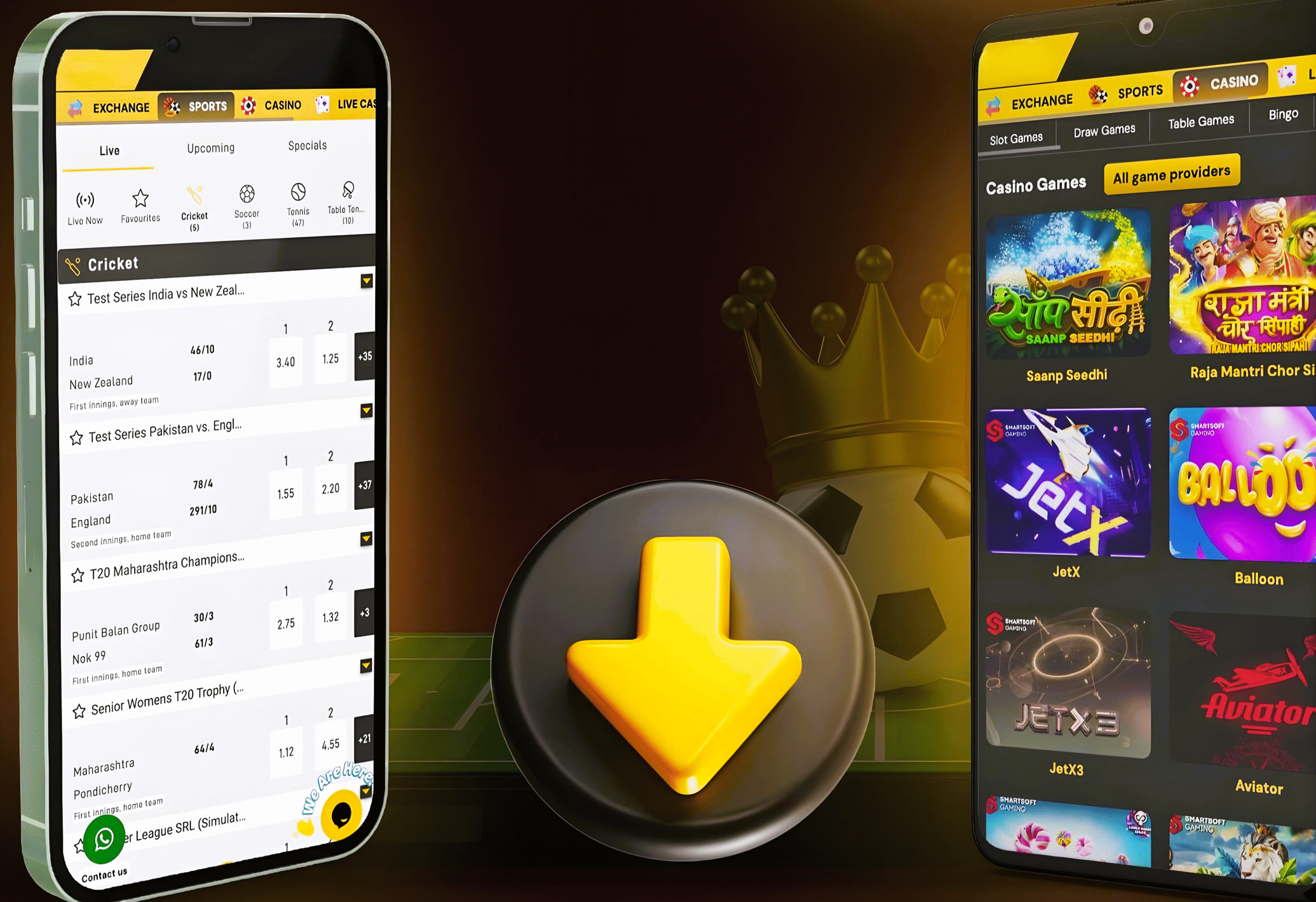How to Set Betting Limits in Casino Accounts
When diving into the world of online casinos in India, one of the most important aspects to consider is managing your bets. Betting can be exciting, but it also comes with risks. To ensure you are betting responsibly and avoid the pitfalls of gambling addiction, it’s crucial to set betting limits. In this article, we’ll walk you through the process of setting betting limits in your Indian casino account, why it’s necessary, and how to do it efficiently.
What Are Betting Limits and Why Are They Important?
Betting limits are one of the most essential tools available to casino players who want to keep their gambling habits under control. In the context of Indian casino accounts, these limits allow users to manage how much money they can deposit, lose, or wager over a certain period. The idea is simple: by setting boundaries, players can enjoy their favorite games without putting their financial well-being at risk. These self-imposed rules act like a safety net, especially in moments when the thrill of gambling might overshadow rational decision-making.
At their core, betting limits serve to prevent reckless behavior. It’s easy to get carried away in the excitement of a win or the frustration of a loss. That’s where limits come into play—they help ground the experience, reminding you of the boundaries you’ve set when your emotions are running high. Whether it’s deciding how much you’re comfortable depositing each day or capping how long you want to play, having these guidelines in place can prevent minor slips from turning into major losses. They’re particularly useful for beginners who might not yet fully understand how fast gambling can affect their finances.
Another reason these limits are so important is that they offer long-term sustainability for your gambling habits. Think of it like budgeting for entertainment. You wouldn’t want to spend your entire monthly salary at a movie theater, right? The same logic applies here. Betting limits create a structured way to enjoy gambling as a form of entertainment rather than a financial risk. They make sure your gaming experience remains fun and doesn’t spiral into something harmful. These tools are not about restriction—they’re about empowerment and control.
Finally, most reputable Indian casinos encourage or even require players to set some form of limit when they register an account. This isn’t just good practice; it’s part of a broader push for responsible gambling. These platforms are becoming increasingly aware of the social responsibility they hold. By integrating limit-setting features directly into the user experience, they create an environment that prioritizes player safety and mental well-being. When used correctly, betting limits transform the gambling experience from a potentially risky venture into a safer, more manageable hobby.
Why Should You Set Betting Limits?
| Reason | Impact on Gambling Behavior | Financial Benefit | Emotional Outcome | Quick Summary |
| Financial Control | Encourages mindful wagering and prevents overspending | Ensures money spent on gambling stays within a set budget | Reduces stress and regret from financial losses | Helps you gamble within your means |
| Prevention of Addiction | Creates barriers that discourage compulsive play | Limits reduce chances of continuously chasing losses | Builds self-awareness and discipline | A proactive step to avoid harmful habits |
| Better Gambling Experience | Promotes enjoyment over financial pressure | Keeps gaming light, affordable, and for entertainment | Increases satisfaction and reduces anxiety | Gambling stays fun and doesn’t feel risky |
| Budget Management | Supports long-term control and habit monitoring | Helps plan monthly entertainment expenses realistically | Encourages responsible money handling | Maintains balance between fun and finances |
| Emotional Stability | Reduces emotional rollercoasters from wins/losses | Protects from financially driven emotional decisions | Encourages a calm, rational approach | Helps maintain a healthy mindset while playing |
Types of Betting Limits You Can Set
When it comes to staying in control of your gambling, betting limits are your best friend. They’re built-in safety nets that you can activate directly within your Indian casino account to make sure things never get out of hand. Different types of limits serve different purposes, and the more familiar you are with each one, the better you’ll be at managing your time, money, and emotions while playing. Here’s a detailed list of the most common types of betting limits you can set, and what they actually do for you.
- Deposit Limits
This limit caps the total amount of money you’re allowed to deposit into your casino account over a set time—usually daily, weekly, or monthly. It’s perfect for keeping your gambling budget in check. If you’ve ever looked back at your bank account and thought, “Did I really spend that much?”—then a deposit limit is for you.
By setting this limit, you’re making sure you never spend more than you can comfortably afford. It’s not just about the money—it’s about peace of mind. You’ll know your entertainment budget is protected, no matter how intense the game gets. - Loss Limits
These limits are all about stopping the downward spiral. Say you hit a losing streak—without a loss limit in place, you might try to chase those losses, betting more and more just to break even. But with a loss limit? As soon as you hit your predefined threshold, you’re locked out from placing more bets until your set period resets.
This pause can be exactly what you need to cool down, get perspective, and avoid a potential financial mess. Loss limits keep your emotions from steering the ship—especially when the waters get rough. - Betting Limits
This one restricts the amount you can stake on a single bet or game round. If you’re someone who likes fast-paced slots or high-stakes card games, this is essential. Without betting limits, it’s easy to go from small, fun wagers to suddenly risking large chunks of your balance without really noticing.
Betting limits put a hard ceiling on how much you’re risking in one go. It’s like telling yourself, “Hey, I’m okay with betting ₹100 on a spin, but not ₹1,000.” This type of limit ensures your sessions stay controlled and predictable. - Session Limits
Ever start a game planning to play for 20 minutes and end up staring at your screen two hours later? That’s where session limits come in. These set a maximum time for each gaming session so you don’t end up spending your entire evening (or worse, night) stuck in a digital loop.
Setting a session limit helps prevent fatigue, burnout, and poor decision-making that often comes with long playtimes. When the limit is up, you get logged out or blocked from continuing, giving you the nudge to take a break. - Wagering Limits
While similar to betting limits, wagering limits track the total amount you wager over a day, week, or month—not just the amount per bet. So even if you’re placing small bets, the cumulative total still counts toward your cap.
This is a fantastic option for players who make lots of small bets without realizing how quickly they add up. Wagering limits help you stay conscious of your overall activity. - Cool-Off Periods
Not exactly a limit in the traditional sense, but incredibly useful. A cool-off period temporarily locks you out of your casino account for a set duration—like 24 hours, a few days, or even a week. You can’t play, deposit, or even log in until the time runs out.
It’s a great tool for stepping back after a rough session or when you just feel like you need a breather. No second-guessing, no temptation. Just a break when you need it most.
Step-by-Step Guide to Setting Betting Limits in Indian Casino Accounts
Setting betting limits in your Indian casino account is a powerful way to stay in control of your gambling activity, and fortunately, the process is straightforward once you know where to look. To begin, you’ll need to log into your account using your credentials. If you’ve forgotten your password or username, most platforms have a secure process for recovering access. Once you’re in, the next step is to find the responsible gambling section, which is typically located within your profile or settings menu. This dedicated area houses all the tools related to controlling your gambling behavior, including self-exclusion options, limit settings, and cool-off features.
Once you’re inside the responsible gambling section, you’ll see a list of different limits you can customize. These usually include deposit limits, loss limits, betting limits, and session time limits. Each of these plays a different role in managing your overall gaming experience. For example, deposit limits help ensure you don’t put more money into your account than you can afford, while session limits make sure you’re not spending too much continuous time gambling. You can pick and choose which of these limits suit your style of play and budget, or set all of them for a more comprehensive safety net.
When selecting a specific limit to adjust, you’ll be prompted to enter your preferred threshold. Most casinos let you set limits based on daily, weekly, or monthly timeframes, giving you a good deal of flexibility. For example, if you know that weekends are when you’re most likely to gamble, setting a weekly deposit cap may be more effective than a daily one. After choosing your limits, double-check the figures to make sure everything is accurate, and then confirm your settings. It’s crucial to ensure that these changes are saved and applied properly so that your limits take effect immediately.
Lastly, don’t just set your limits and forget about them. Make it a habit to review and adjust them regularly, especially if your financial situation changes or you experience a winning or losing streak. Your gambling habits can shift over time, and so should your limits. Some casinos even provide visual dashboards or notifications to help you track your activity and remind you when it’s time to reassess. This kind of self-monitoring ensures that your gambling stays fun, manageable, and well within your control.
Other Responsible Gambling Tools in Indian Casinos
| Tool Name | Purpose | How It Works | Key Benefits | Duration Options |
| Self-Exclusion | To help players take a break from gambling voluntarily | Temporarily or permanently locks you out of your account | Prevents impulsive gambling, supports recovery | 24 hours, 1 week, 1 month, permanent |
| Reality Checks | To remind players how long they’ve been gambling | On-screen pop-up alerts at set time intervals during gameplay | Encourages breaks, promotes time awareness | Every 30 min, 1 hour, 2 hours |
| Account History | To provide detailed records of gambling activity | Displays a timeline of deposits, bets, wins, and losses | Helps you monitor spending and identify risky patterns | Full access anytime |
| Time-Outs | For short-term breaks without permanent account action | Temporarily blocks access to your account without deactivating it | Ideal for cooling off after losses or emotional decisions | 24 hours to several weeks |
| Activity Limits | To control the number of logins or sessions in a timeframe | Restricts the number of times you can log in or play games within set limits | Reduces excessive logins or gaming frequency | Daily, weekly |
Understanding the Legal Landscape of Online Gambling in India
- Online gambling in India exists in a legal grey area, as there is no unified national legislation that governs it directly. The Public Gambling Act of 1867, which is the main legal framework, primarily targets physical gambling houses and doesn’t cover digital platforms explicitly.
- State-wise autonomy plays a major role in gambling legality, meaning each state has the power to regulate gambling activities within its borders. For example, Sikkim and Goa have legalized certain forms of casino gambling, including online games under strict regulation, while other states like Tamil Nadu and Telangana have banned it altogether.
- Foreign-based online casinos operating in India often exploit legal loopholes, as they are not registered within Indian jurisdiction but still accept Indian players and allow transactions in INR. While not officially illegal, playing on such platforms comes with limited legal protection for users.
- The Indian government promotes responsible gambling practices by encouraging casinos to implement protective tools such as betting limits, self-exclusion, and time-outs. These are not just industry best practices but are increasingly being expected as part of compliance with responsible gaming norms.
- Digital payment laws and financial regulations indirectly impact online gambling, with certain restrictions placed on transactions involving gambling sites, especially through Indian banks and payment gateways. This creates additional complexity for users trying to set financial boundaries.
- The Information Technology Act of 2000 adds another layer to the regulatory scenario, allowing the government to block access to illegal or unethical content, including unauthorized gambling websites. However, enforcement remains inconsistent.
- Lack of a centralized gambling authority results in fragmented regulation, which affects how well betting limits and player protection tools are enforced. Players need to rely heavily on the reputation and policies of the individual casino platforms.
- The emergence of local regulatory bodies in some states signals gradual change, with places like Sikkim issuing online gaming licenses and mandating responsible gambling frameworks, including features like deposit caps and session monitoring.
- Operators who ignore responsible gambling standards risk penalties in states with clearer laws. These may include fines, license suspensions, or bans, which indirectly incentivize casinos to offer user-controlled limits and gambling support tools.
- Public and political opinion on online gambling remains mixed, leading to frequent changes and legal amendments in individual states. This unpredictability means users must regularly review their local laws and the status of the platforms they use.




